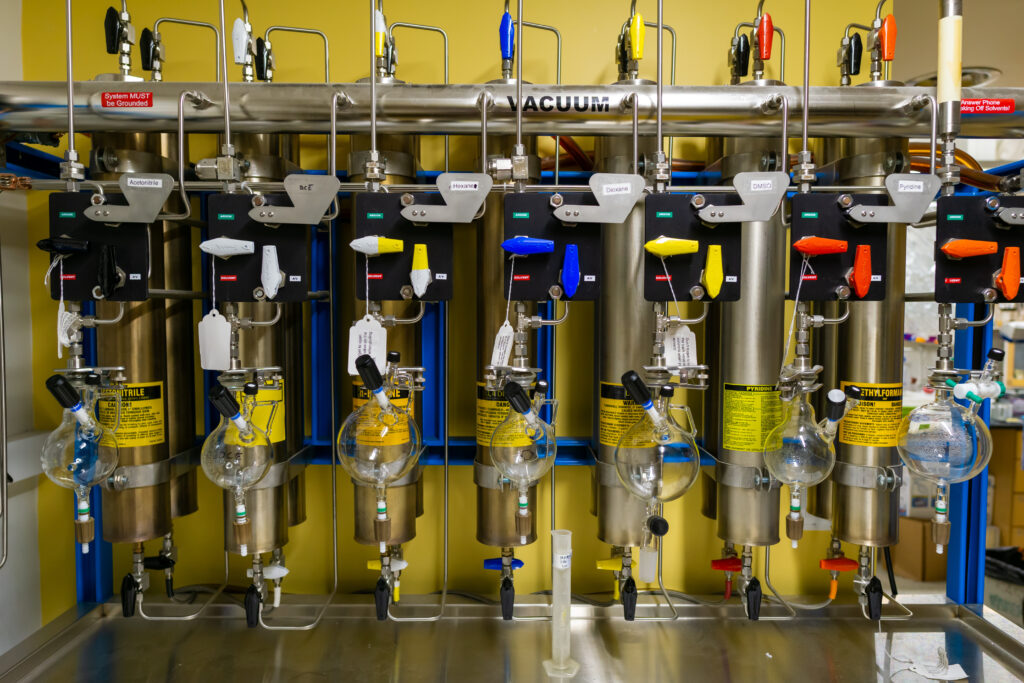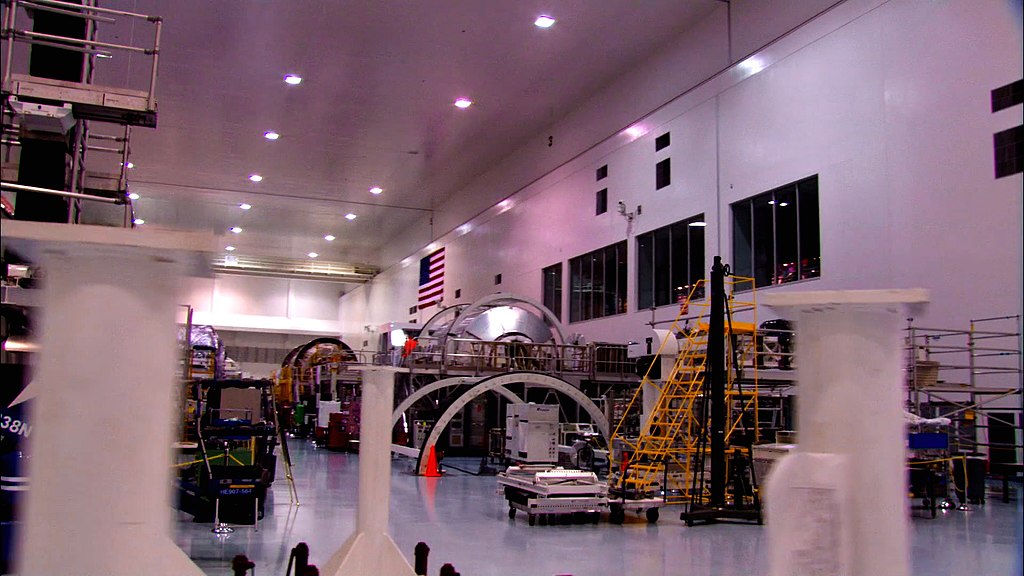The importance of solvent recycling in the automotive industry is a multifaceted issue, encompassing both economic and environmental benefits. However, its potential remains underappreciated by some industry stakeholders.
Economic Benefits Of Solvent Recycling
Cost Efficiency
Arguably the most compelling argument in the automotive industry is its potential for cost savings. Solvent recycling eliminates the necessity of purchasing new solvents and the associated transportation costs. Recycled solvents demonstrate performance levels equivalent to those of virgin solvents, thus assuring the same production quality while substantially reducing the overall manufacturing cost.
Reducing Waste Disposal Costs
The automotive industry generates vast quantities of waste solvents. Traditional disposal methods, such as incineration, carry significant cost implications, and in many jurisdictions, are heavily regulated due to their environmental impacts. Recycling these solvents can help automotive manufacturers cut waste disposal costs while complying with stringent waste disposal regulations.
Mitigating Price Volatility
A less immediately obvious but equally important economic benefit is the mitigation of price volatility. The prices of raw materials required for solvent production, such as crude oil, are subject to significant fluctuations based on market dynamics and geopolitical situations. By recycling solvents, automotive manufacturers can insulate themselves from this volatility to a certain extent, leading to more predictable and manageable operating expenses.
Enhanced Brand Reputation And Market Opportunities
The commitment to sustainability and responsible resource management often bolsters a company’s reputation, making its products more attractive to environmentally conscious consumers. This shift in consumer preferences presents a significant market opportunity for automotive manufacturers that embrace this environmentally friendly process, potentially driving increased sales and market share.
Environmental Benefits Of Solvent Recycling
Reducing Greenhouse Gas Emissions
Manufacturing new solvents involves numerous chemical reactions, many of which release significant amounts of greenhouse gases. By recycling solvents, the industry can effectively cut down its carbon footprint and contribute to global efforts against climate change. Furthermore, avoiding the incineration of waste solvents can also significantly reduce greenhouse gas emissions.
Conservation Of Natural Resources
Solvent production is a resource-intensive process that requires raw materials such as crude oil. Recycling solvents can alleviate the pressure on these non-renewable resources, contributing to their conservation.
Reducing Air And Water Pollution
Beyond reducing greenhouse gas emissions, solvent recycling also contributes to the reduction of air and water pollution. Manufacturing new solvents and disposing of waste solvents often involve processes that release harmful substances into the environment. Through recycling, these impacts can be significantly reduced.
Promoting A Circular Economy
This is a key aspect of the circular economy model, which seeks to minimize waste and make the most of resources. In this model, waste solvents are seen not as an unavoidable byproduct but as a resource to be cycled back into the production process. The adoption of solvent recycling by the automotive industry is thus an important step towards a more sustainable, circular economy.
The Hidden Value In Waste
It’s worth reiterating that waste solvents are not merely a byproduct to be disposed of but a valuable resource to be harnessed. By recycling solvents, automotive manufacturers can extract additional value from their manufacturing processes, turning what was once a cost center into a source of savings.
Integration Of Solvent Recycling Into The Automotive Manufacturing Process
The integration into the automotive manufacturing process is no simple task, given the complexities involved. However, the rewards are equally substantial.
Selection Of Appropriate Recycling Technologies
There are numerous recycling technologies available, each with their own merits and limitations. Automotive manufacturers must be discerning in their selection, ensuring that the chosen technology is efficient, cost-effective, and suited to the particular type of solvents they use.
Ensuring Regulatory Compliance
Compliance with environmental and safety regulations is crucial when implementing solvent recycling. Automotive manufacturers should engage with relevant authorities and environmental consultants to ensure that their recycling operations are fully compliant.
The Future Of Solvent Recycling In The Automotive Industry
While the current uptake in the automotive industry is encouraging, there is considerable scope for further growth. The evolution of recycling technologies and the increasing pressure to adopt sustainable manufacturing practices are key drivers for this trend.
Technological Advancements
Emerging technologies promise to make it even more efficient and economical. Advances in distillation, filtration, and other recycling processes are set to further enhance the economic and environmental benefits.
Increased Regulatory Pressure
Increasing global concern over environmental degradation is resulting in stricter regulations for waste disposal and greenhouse gas emissions. These regulations are likely to compel more automotive manufacturers to adopt solvent recycling, further driving its growth in the industry.
The economic and environmental benefits in the automotive industry are manifold. From cost savings and regulatory compliance to reduced greenhouse gas emissions and conservation of natural resources, the advantages are clear and compelling. By embracing this form of recycling, the automotive industry can not only improve its bottom line but also contribute significantly to global sustainability efforts.
FAQs
1. What are the primary economic benefits of solvent recycling in the automotive industry?
The main economic benefits include significant cost savings from reducing the purchase of new solvents and decreasing waste disposal costs.
2. How does solvent recycling contribute to environmental protection?
It reduces the industry’s carbon footprint by cutting down on greenhouse gas emissions associated with solvent production and waste disposal. It also contributes to the conservation of non-renewable resources.
3. How can solvent recycling be integrated into the automotive manufacturing process?
Automotive manufacturers can integrate solvent recycling by selecting appropriate recycling technologies and ensuring compliance with environmental and safety regulations.
4. What is the future of solvent recycling in the automotive industry?
With advancements in recycling technologies and increasing regulatory pressure, the future of recycling solvents in the automotive industry looks promising.
5. How does solvent recycling mitigate price volatility?
The prices of raw materials for solvent production can fluctuate significantly. Recycling solvents insulates manufacturers from these fluctuations, leading to more predictable operating costs.
6. How does solvent recycling contribute to reducing air and water pollution?
The production and disposal of solvents involve processes that release harmful substances into the air and water. Recycling solvents can reduce these impacts significantly.
7. What are the practical considerations for implementing solvent recycling?
Implementation requires investment in specialized equipment and training. Once implemented, operations should be continuously monitored and improved upon.
8. How do changes in the regulatory environment and market dynamics affect solvent recycling?
Stricter regulations and growing demand for green products are driving the adoption of solvent recycling. Manufacturers who embrace this trend will be better positioned in the evolving market.


